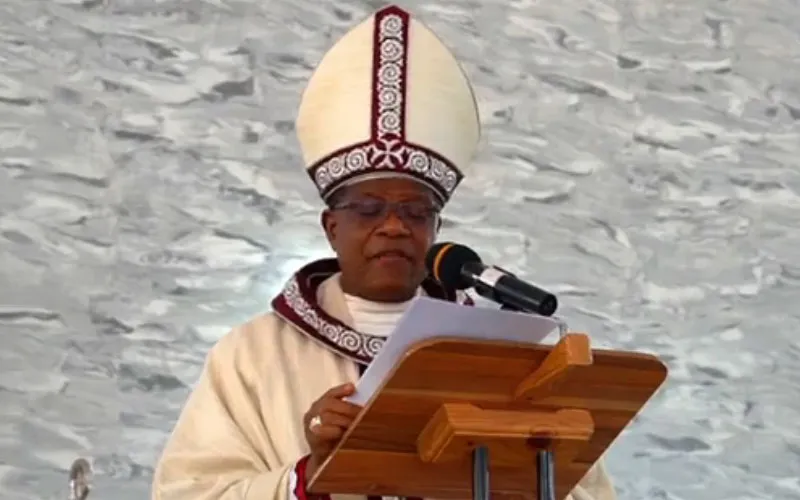They say that failure by the government to uphold democracy is responsible for the country’s ongoing ethnic and sectionalistic agitations for justice and fairness.
Nigeria has witnessed an increasing divide between the ruling class and the people, the Christian leaders say, adding that with the vacuum created by an alienating leadership at the federal, regional and State levels, separatist bodies emerged and soon began to win the loyalty of frustrated citizens.
They give the example of IPOB, which came up and gained prominence in the South East of Nigeria.
“Although it was proscribed by the Federal Government in 2017, the group (IPOB) has continued its agitation for an independent State of Biafra, often leading to heavy military responses and the loss of lives of many youths,” the Christian leaders say, adding that the group is also accused of various killings, many of which it denies.
Amid all this, many criminal elements have emerged, a situation that the Christian leaders term as “a very dangerous environment.”
(Story continues below)
They call for an end to the killings in South East Nigeria saying, “We believe that there are still other options besides violence, over-militarization of the area, and senseless killings.”
“We passionately call on the Federal Government to, as a matter of urgency, address the underlying reason for the agitations, namely, the desire for equity, fairness and good governance in Nigeria, in order to eliminate, or at least minimize, the separatist agitations, not only in the South East, but everywhere else in Nigeria,” they say.
The Church leaders, including Prelates of the Catholic Church in South East Nigeria, also appeal to the political leaders of the region to see themselves as representatives of the people and to invest all available resources in the security, development of the region, and creation of jobs.
They note that people who are aggrieved the most by the government are those who have invested in education and gaining skills yet they cannot find gainful employment.
“Our political leaders must do something to reduce the huge gulf between their personal welfare and that of the people at large,” the leaders say, and add, “In a special way, we urge that, since the youth are our strength and hope as a nation in our various regions and states, extra attention, care and sacrifice need to be expended, in order to win back their confidence and trust in government.”
In their message to aggrieved youth in Nigeria, the Christian leaders say, “As spiritual fathers, we say to you our aggrieved youths: We hear your cry.”
They further express their commitment to alleviate the suffering of young people in Nigeria, saying, “We understand your anxiety about your present and your future. Therefore, we recommit ourselves to continue doing all within our powers in order to address your concerns, in collaboration with our elected representatives, the private sector and all the other segments of our society.”
In their appeal to the Nigerian government to grant anarchy to separate fighters, the Christian leaders express enthusiasm that the de-criminalization and de-proscription of these groups would lead them to embrace the democratic and non-violent means of negotiation. This, they say, will in turn open the path of dialogue on the future of Nigeria.
The move, they say, will win the hearts of all and lead to a better rapport between the political leaders and the people in the future.
“A militarist and high-handed approach may win the peace of the mortuary and graveyard, but it cannot win the hearts and minds of the people,” the church leaders assert.
They further appeal, “We, therefore, urge all, in the name of God, to join hands and work hard to restore trust, confidence and calm in South East Nigeria. Growth and development in our region cannot be achieved through intimidation, mass murder and destruction.”
Meanwhile, the Christian leaders have called on Nigerians in the diaspora to make responsible use of social media in a way that does not incite more violence in the country.
They say, in reference to social media use among Nigerians, “This very powerful instrument that modern technology has placed in our hands should be used to build up, not to destroy; to dispel ignorance and spread love, not to spread falsehood, create fear and panic.”
“We equally ask the security agencies to be professional in their efforts to ensure the maintenance of law and order in the region,” they say, and add, “We continue to pray and call on all Christians as well as all people of good will to join us in praying for peace that is based on justice, fairness, equity and good governance in Nigeria.”
Agnes Aineah is a Kenyan journalist with a background in digital and newspaper reporting. She holds a Master of Arts in Digital Journalism from the Aga Khan University, Graduate School of Media and Communications and a Bachelor's Degree in Linguistics, Media and Communications from Kenya's Moi University. Agnes currently serves as a journalist for ACI Africa.








